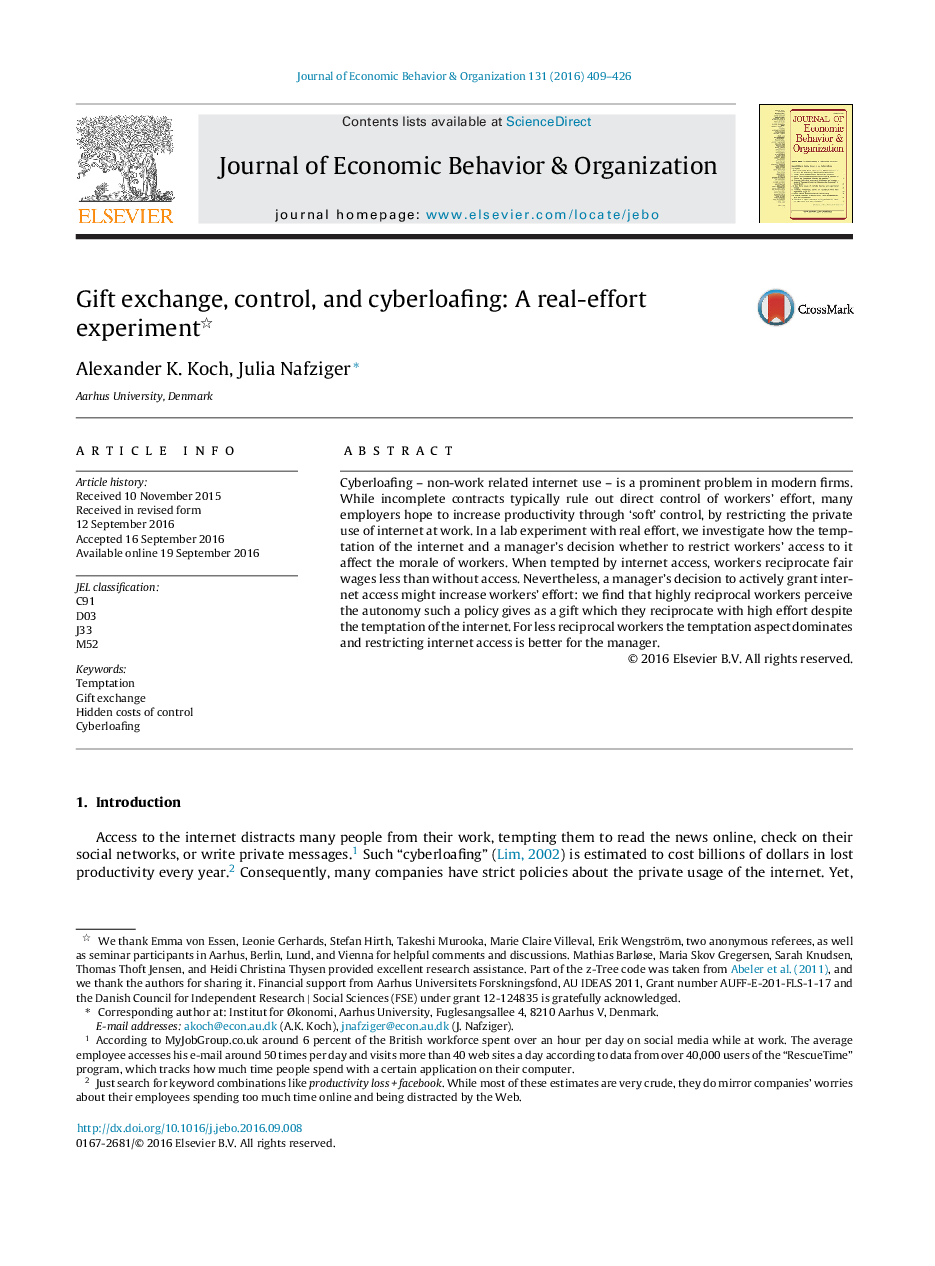| Article ID | Journal | Published Year | Pages | File Type |
|---|---|---|---|---|
| 5034702 | Journal of Economic Behavior & Organization | 2016 | 18 Pages |
â¢In a lab experiment with real effort, we investigate how the temptation of the internet and a manager's decision whether to restrict workers' access to it affect the morale of workers.â¢When tempted by internet access, workers reciprocate fair wages less than without access.â¢Yet, a manager's decision to actively grant internet access might increase workers' effort.â¢Highly reciprocal workers perceive the “freedom from control” as a gift which they reciprocate with high effort despite the temptation of the internet.
Cyberloafing - non-work related internet use - is a prominent problem in modern firms. While incomplete contracts typically rule out direct control of workers' effort, many employers hope to increase productivity through 'soft' control, by restricting the private use of internet at work. In a lab experiment with real effort, we investigate how the temptation of the internet and a manager's decision whether to restrict workers' access to it affect the morale of workers. When tempted by internet access, workers reciprocate fair wages less than without access. Nevertheless, a manager's decision to actively grant internet access might increase workers' effort: we find that highly reciprocal workers perceive the autonomy such a policy gives as a gift which they reciprocate with high effort despite the temptation of the internet. For less reciprocal workers the temptation aspect dominates and restricting internet access is better for the manager.
